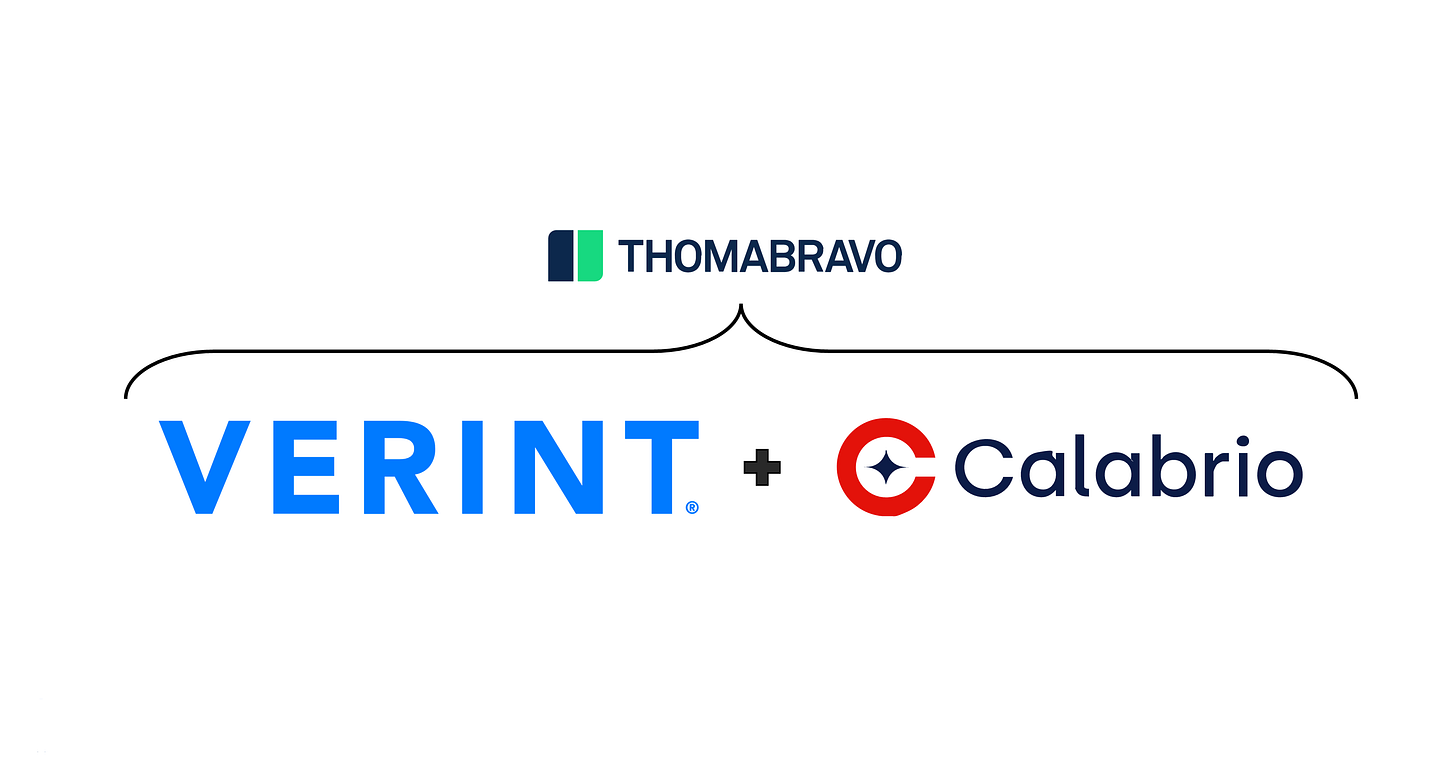In a major move for the CX industry, Thoma Bravo announced last week its intent to acquire Verint in a $2B all-cash transaction and merge it with portfolio company Calabrio.
Verint is a leading player in CX Automation, but its portfolio extends far beyond. Founded in 1994 as a recording and surveillance company, it has undergone multiple transformations, first becoming a contact center quality management provider, then expanding into Workforce Optimization (WFO) through its 2007 acquisition of Witness, a category that has since evolved into Workforce Engagement Management (WEM).
Over the years, the company significantly expanded its portfolio through a series of acquisitions, including KANA Software in 2014 (Digital Customer Service), OpinionLab in 2016 and ForeSee in 2018 (Voice of the Customer), Next IT in 2017 (Conversational AI), Transversal in 2019 (Knowledge Management), and Conversocial in 2021 (Social Service).
This left Verint with significant debt and, from 2019 onward, mounting pressure from activist investors to both deleverage and accelerate its cloud transition. Since then, the company spun off its security business, shifted to recurring revenue, and reduced debt from nearly $1B in 2020 to $440M. These efforts absorbed much of the company’s focus, limiting its ability to fully capitalize on its broad portfolio.
In 2023, Verint shifted back to offense, unveiling its Open Platform with a focus on CX Automation. It was among the first providers to embrace the post-COVID shift toward automation and pioneered the concept of an army of AI-specialized bots well before AI agents became a thing.
Two aspects make Verint Open Platform stand out. It is not only CCaaS-agnostic but also deployable on top of on-premises contact center software, its Open CCaaS branding reflecting a "Switzerland" approach to the market. The platform supports a portfolio of 50 specialized bots, each aligned to a specific task and measurable outcome. These bots can be rolled out incrementally, giving customer service organizations a path to continuous improvement.
Since early 2024, the company has issued nearly 30 press announcements highlighting multi-million-dollar projects or the business impact of its AI bots at major enterprises. After three years of stable revenues amid its transition from perpetual licenses to recurring revenue and a shift from WEM to automation, Verint highlighted the momentum of its AI solutions in its latest quarterly earnings calls, with ARR for AI offerings up 24% year-over-year to $354M.
Its broad portfolio has given it a significant industry footprint, with four million agents using at least one of its solutions. Recently, the company has acted as a quiet acquirer, completing tuck-in deals including Cogito (emotion AI), Fonolo (callback), and several data analytics providers.
Thoma Bravo should "shield" Verint from market pressures as it completes its transformation and enable it to fully realize its potential in automation.
The disciplined, private-equity approach to planning will allow the company to prioritize the most promising parts of its broad portfolio.
A critical success factor will be the merging of the two WEM portfolios. While CCaaS providers have been building their own WEM components, deployments above 250 seats still require best-of-breed solutions, underscoring that WEM remains a sizeable market. It’s interesting to note that Alvaria recently spun out its WEM business under the Aspect brand to pursue the same opportunity.
There’s been discussion that Thoma Bravo could or should further combine Verint and Calabrio with other portfolio companies, such as Medallia (VoC and CX management), Aisera (Automation), or even UserTesting. I don’t expect this in the near term: executing the current integration is already a major undertaking, and another large-scale merger would likely introduce further complexities and distractions.
One thing is clear: Verint has yet to capture its fair share of the market. The real opportunity for Thoma Bravo lies in changing that.



